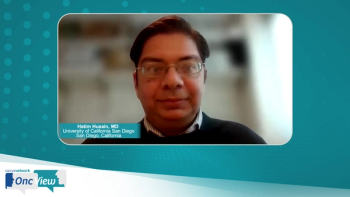
R/R FL: The Role of PI3K Inhibitors
A key opinion leader reviews the role of PI3K kinase inhibitors in the third-line or later settings for the treatment of follicular lymphoma.
Episodes in this series

Kristie L. Kahl: To bring this discussion together, can you talk about the role of the PI3K kinase inhibitors for a relapsed or refractory follicular lymphoma in the third line or earlier?
Sameh Gaballa, MD: Obviously, we have a few PI3 kinase inhibitors. The initial 1 was idelalisib. Then we got copanlisib, then duvelisib, and most recently umbralisib. They’re all approved in patients with follicular lymphoma, in the third-line setting. Although umbralisib, I believe, is for patients who’ve had 3 lines of prior therapies. In any case, efficacy-wise, most of them are similar. You’re getting overall responses anywhere between 50% and 60%. Progression-free survival is typically about a year, give or take. There are differences among them, though. They’re not all the same in terms of their safety profile. Idelalisib and duvelisib can be associated with some hepatic issues: Infectious complications such as colitis or pneumonitis in patients. Copanlisib seems to have less of these, but it’s associated with some transient elevations in blood pressure or blood glucose. Copanlisib is an infusion, whereas the others are oral. Copanlisib, being an infusion, is given intermittently, whereas others are given continuously. There are other ongoing trials looking at intermittent dosing for oral PI3 kinase inhibitors. The most recent addition has been umbralisib, which is a PI3 kinase delta isoform inhibitor. It also has fewer of these immune-mediated adverse effects, but it still has some hepatic issues, so you want to keep an eye on their liver functions. But it definitely has less autoimmune pneumonitis, in particular, which is definitely a welcome addition to the options that we have.
Transcript edited for clarity.
Newsletter
Stay up to date on recent advances in the multidisciplinary approach to cancer.




































